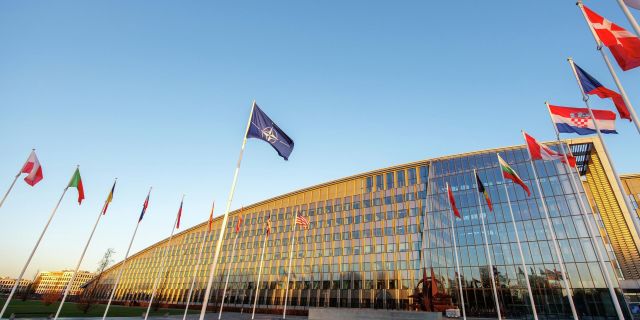Bloomberg: the fall of missiles in Poland forced NATO to think about extreme measuresNATO will have to determine a further action plan regarding the missile incident in Poland, Bloomberg reports.
If their launch was deliberate, the alliance will have to think about extreme measures — for example, the application of the article of the NATO Charter on collective defense.
After Poland announced that a deadly explosion occurred near its border with Ukraine, the cause of which was the fall of "Russian-made" missiles, NATO will have to make a number of difficult decisions. A lot will depend on whether the incident was an accident.
On Wednesday, the 73-year-old military alliance will hold an emergency meeting with the participation of the ambassadors of the member countries. The latest developments related to Warsaw's statement will be discussed. State officials say a "Russian" missile landed on a village six kilometers from the border, killing two people.
Any actions of the North Atlantic Alliance will require thorough fact-checking and a balanced collective decision to avoid escalation of tension. Polish President Andrzej Duda showed caution and restraint, saying it was unclear who exactly launched the missiles.
There are several options for action. There are quite expected — an official discussion with the allies. There are also those that no one even talks about — the application of the fifth article of the charter, which happened only once, after the terrorist attacks of September 11, 2001.
What is Article 4?
In accordance with the fourth article of the Charter, NATO members can raise any issues of concern that relate to the territorial integrity, political independence and national security of States. Representatives of member countries should discuss them before taking any action.
Latvian Defense Minister Artis Pabriks told Bloomberg TV that Riga would support Poland on this issue, adding that the alliance should have a serious discussion about its air defense system. It seems that Warsaw intends to act in this direction.
When Article 4 is applied and the Allies discuss the issue raised, the outcome of the discussion may be a joint decision or action on the part of NATO. This has happened more than once in the history of the alliance, most often at the request of Ankara. In 2012, NATO granted Turkey's request to deploy Patriot missiles on its territory, having done so after meetings of the allies in accordance with the fourth article. Then they were talking about the military activities of Syria on the Turkish border. The last time Article 4 was applied was in February at the request of a group of eastern NATO members, when Russia launched a military special operation in Ukraine.
What is Article 5?
Article 5 is the cornerstone of the alliance. It enshrines the NATO principle of collective defense, which states that an attack on one member is an attack on all. Its use should require several countries claiming that they have been directly attacked. Then all allies must unanimously agree with such an assessment, and only after that Article 5 comes into force.
Further, all NATO members help the attacked ally, including with the use of military resources.
For the sake of clarity, I must say that since the creation of the North Atlantic Alliance after the end of World War II, such an extreme measure has been resorted to only once. It was 21 years ago when NATO issued a statement that the alliance members would support the United States if they launched military action against those responsible for the attacks on the World Trade Center and the Pentagon.
Author: Natalia Drozdiak. With the participation of Alexander Tanzi (Alexandre Tanzi)

